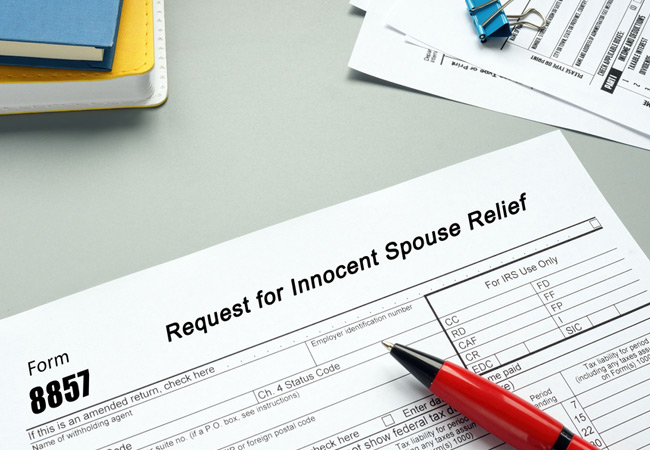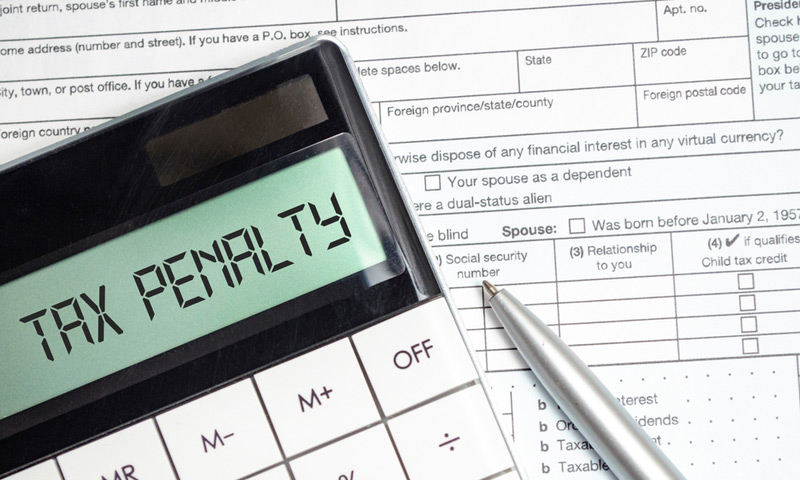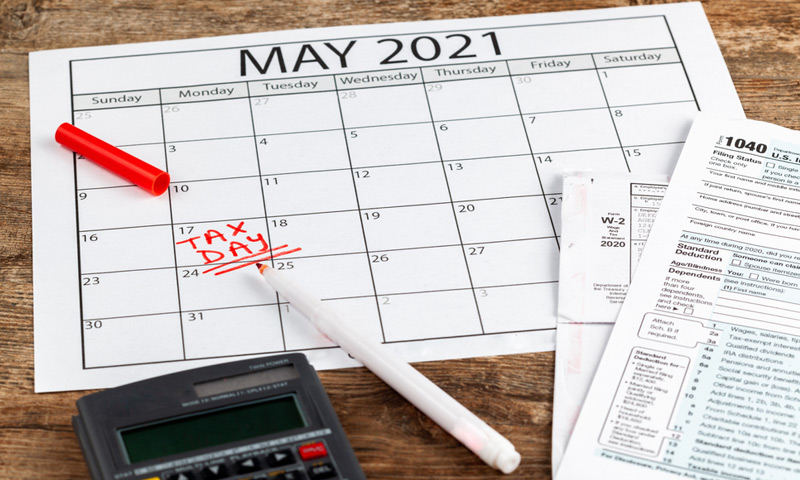What is Tax Relief?
Tax relief refers to any government program or policy designed to help individuals and businesses reduce their tax burdens or resolve their tax-related debts.
Tax relief may be in the form of universal tax cuts, targeted programs that benefit specific groups of taxpayers, or initiatives that bolster particular goals of the government.

Understanding Tax Relief
Common Tax Relief Programs
The IRS offers taxpayers multiple programs to resolve outstanding tax debts. Here are the four most commonly used programs for taxpayers who owe back taxes to the IRS:
If a taxpayer is financially unable to pay his/her tax debt in full immediately, they can make monthly payments through an Installment Agreement (IA). The monthly payments are based on how much you owe and how much you can afford to pay each month. An IA is a great solution for taxpayers who have substantial disposable income each month which can allow then to make affordable monthly payments. Interest will continue to grow and there may be applications fees involved, but these pay plans can help you resolve your inability to fully pay your taxes in one payment.
Installment Agreement Guidelines:
- All tax returns must be filed.
- Full financial disclosure.
- Streamline IA: Pay plans set up quickly without full financial disclosure.
- Individuals that owe $50,000 or less can qualify for a streamline IA.
- Businesses that owe $25,000 or less can qualify for a streamline IA.

The OIC is a program that allows a taxpayer to settle their delinquent taxes for less than the total amount the IRS claims they owe. The OIC is the most commonly used of all tax resolution programs. And more recently, new OIC guidelines have given even more opportunities to those who previously did not qualify for an OIC under previous program guidelines. These guidelines, when correctly applied, result in taxpayers reaching favorable settlements. If these guidelines are not applied properly, a taxpayer’s OIC may be rejected or, even worse, the taxpayer may overpay.
Offer in Compromise Programs use Form 656:
Doubt as to Collectability
A Doubt as to Collectability Offer in Compromise is negotiated based on a taxpayer’s inability to pay and considers the taxpayer’s current financial position including the taxpayer’s equity in assets.
Doubt as to Liability
A Doubt as to Liability Offer in Compromise allows taxpayers that do not agree that they owe the tax or feel that the tax has been incorrectly calculated, an opportunity to have their tax liabilities reconsidered.
Effective Tax Administration (ETA)
Effective Tax Administration Offer in Compromise is negotiated when there is no doubt that the tax is legally owed and that the full amount owed can be collected, but requiring payment in full would either create an economic hardship or would be unfair and inequitable because of exceptional circumstances.

Currently Not Collectible
A taxpayer may qualify for Currently Not Collectible (CNC) status when the IRS recognizes you cannot pay the taxes due. It is a temporary delay in collection until your financial condition improves. The taxpayer may be required to fill out a financial information statement to prove financial hardship. A tax lien may be filed during this time and penalties and interest will continue to grow. However, no bank levies or wage garnishments will be issued during this temporary delay.

Innocent/Injured Spouse Relief
By requesting innocent spouse relief, you can be relieved of responsibility for paying tax, interest, and penalties if your spouse (or former spouse) improperly reported items or omitted items on your tax return. Generally, the tax, interest, and penalties that qualify for relief can only be collected from your spouse (or former spouse.) However, you are jointly and individually responsible for any tax, interest, and penalties that do not qualify for relief. The IRS can collect these amounts from either you or your spouse (or former spouse.)

Penalty Abatement
Use Form 843 to claim a refund or request an abatement of certain taxes, interest, penalties, fees, and additions to tax.
The IRS may provide administrative relief from a penalty that would otherwise be applicable under its First-Time Penalty Abatement policy. You may qualify for administrative relief from penalties for failing to file a tax return, pay on time, and/or to deposit taxes when due under the First Time Penalty Abatement policy if the following are true:
- You didn’t previously have to file a return or you have no penalties for the 3 tax years prior to the tax year in which you received a penalty.
- You filed all currently required returns or filed an extension of time to file.
- You have paid, or arranged to pay, any tax due.
The failure-to-pay penalty will continue to accrue, until the tax is paid in full. It may be to your advantage to wait until you fully pay the tax due prior to requesting penalty relief under the IRS’s first time penalty abatement policy.

Request for an Extension
Need more time to prepare your federal tax return? Please be aware that:
- An extension of time to file your return does not grant you any extension of time to pay your taxes.
- You should estimate and pay any owed taxes by your regular deadline to help avoid possible penalties.
- You must file your extension request no later than the regular due date of your return.
Individual tax filers, regardless of income, can electronically request an automatic tax-filing extension.
- Filing this form gives you until October 15 to file a return.
- If October 15 falls on a Saturday, Sunday, or legal holiday, the due date is delayed until the next business day. Your return is considered filed on time if the envelope is properly addressed, postmarked, and deposited in the mail by the due date.
- If October 15 falls on a Saturday, Sunday, or legal holiday, the due date is delayed until the next business day. Your return is considered filed on time if the envelope is properly addressed, postmarked, and deposited in the mail by the due date.
- To get the extension, you must estimate your tax liability on this form and should also pay any amount due.

Tax Relief in Disaster Situations
Americans that have been affected by hurricanes, floods, wildfires, pandemics, earthquakes, and other natural disasters could be offered special tax relief. Disaster victims may qualify for extensions and could possibly claim casualty losses on their federal income tax returns.
An affected taxpayer includes:
- An individual
- Any business entity or sole proprietor
- Any shareholder in an S Corporation
A taxpayer does not have to be located in a federally declared disaster area to be an “affected taxpayer.” Taxpayers are considered “affected” if records necessary to meet a filing or payment deadline postponed during the relief period are located in a covered disaster area.

Coronavirus Tax Relief
All the latest Covid-19 pandemic tax rules and coronavirus tax relief initiatives are available for taxpayers, families, business and tax-exempt entities on irs.gov.

About Tax Response Center
Full-Service Tax Relief Company
Tax Response Center is a full-service tax company that provides reliable and rewarding Tax Relief Help and Tax Resolution experiences for our clients. Our vision is simple yet strong- Achieve the Best Results and Secure Financial Freedom. From start to finish, we remain dedicated to ensuring your financial protection and peace of mind in every type of tax situation.
As a company focused on resolving tax issues with the Internal Revenue Service (IRS) and state taxing agencies, we provide the most comprehensive tax service in the country. In fact, it’s the first of its kind. We offer what no one else does!

For a small monthly fee you get everything that you would as if you paid thousands of dollars to another tax company, and so much more. Yes, it’s true. We are the leaders in changing the tax industry so every single taxpayer can afford to take advantage of the programs available for them.
TAX HELP ANY DAY, EVERY DAY.
We are the first and only tax company in the country to offer tax relief services and tax debt help for inexpensive costs. You really get so much more for your money!
Get started today. It’s easy.

1. CALL NOW
Our professionals analyze your situation and see what plan and service best fits your immediate and long term needs.

2. SIGN ON
We immediately take over and contact the IRS and/or State Agency and establish representation.

3. RESOLVE
We resolve your immediate tax issues.

4. RELAX
You relax while we monitor your taxes and financial requirements moving forward.
Tax Response Center provides top-rated tax relief help and IRS tax debt services throughout the United States.
Arizona Tax Relief Services
Alaska Tax Relief Services
Alabama Tax Relief Services
Arkansas Tax Relief Services
California Tax Relief Services
Colorado Tax Relief Services
Connecticut Tax Relief Services
Delaware Tax Relief Services
Florida Tax Relief Services
Georgia Tax Relief Services
Hawaii Tax Relief Services
Idaho Tax Relief Services
Illinois Tax Relief Services
Indiana Tax Relief Services
Iowa Tax Relief Services
Kansas Tax Relief Services
Kentucky Tax Relief Services
Louisiana Tax Relief Services
Maine Tax Relief Services
Maryland Tax Relief Services
Massachusetts Tax Relief Services
Michigan Tax Relief Services
Minnesota Tax Relief Services
Mississippi Tax Relief Services
Missouri Tax Relief Services
Montana Tax Relief Services
Nebraska Tax Relief Services
Nevada Tax Relief Services
New Hampshire Tax Relief Services
New Jersey Tax Relief Services
New Mexico Tax Relief Services
New York Tax Relief Servicesa
North Carolina Tax Relief Services
North Dakota Tax Relief Services
Ohio Tax Relief Services
Oklahoma Tax Relief Services
Oregon Tax Relief Services
Pennsylvania Tax Relief Services
Rhode Island Tax Relief Services
South Carolina Tax Relief Services
South Dakota Tax Relief Services
Tennessee Tax Relief Services
Texas Tax Relief Services
Utah Tax Relief Services
Vermont Tax Relief Services
Virginia Tax Relief Services
Washington Tax Relief Services
West Virginia Tax Relief Services
Wisconsin Tax Relief Services
Wyoming Tax Relief Services




